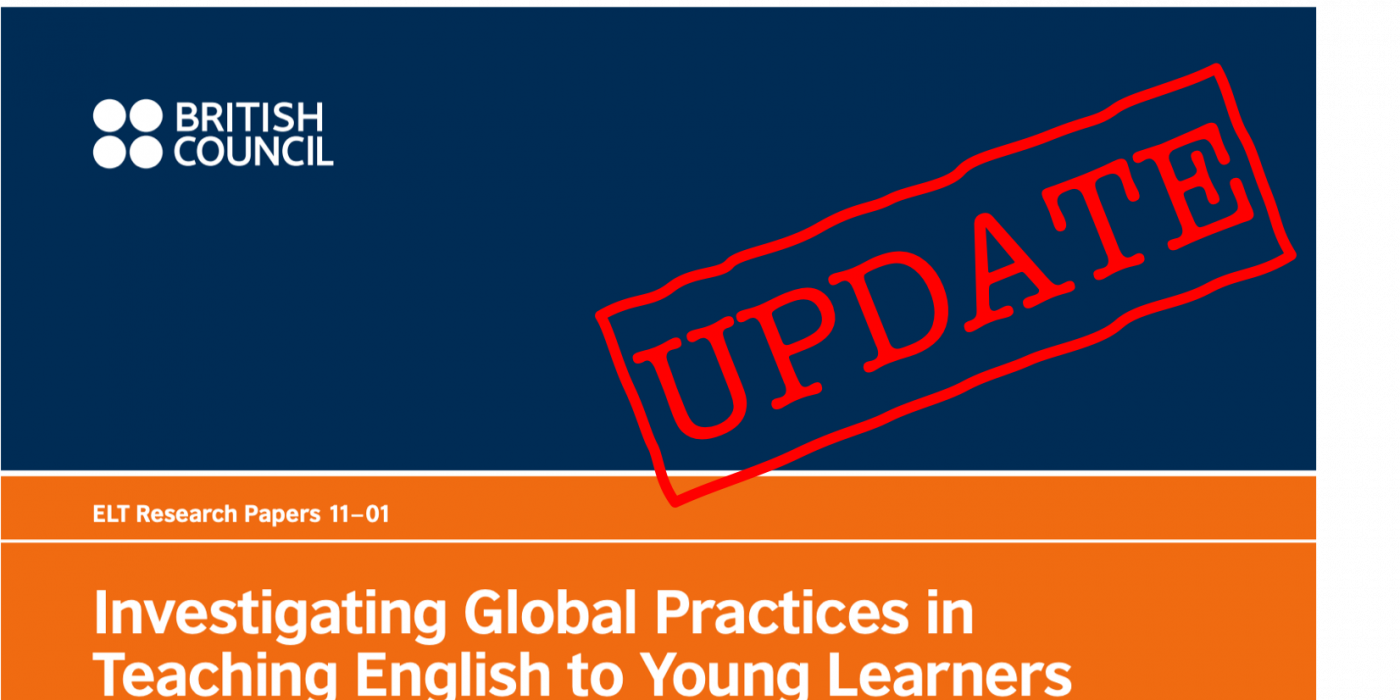In a break from Covid-19 related posts, we bring you an invitation to get involved in a new research project. Sue Garton and Fiona Copland of Aston and Stirling Universities, respectively, are looking for teachers of 7-11-year-old English learners to take part in an online survey about their teaching practices. Read on to learn more.
Ten years ago, we conducted a groundbreaking study of global practices and problems when teaching English to young learners. At that time, around the world, English was being introduced to increasing numbers of children at younger ages than ever before. We argued that knowledge and understanding of teaching practices in the field of young learners was, at best, sketchy. Thus, curricula and practices were often being developed in an ad hoc way. Our study, as far as we are aware, was the first to examine globally how teachers go about their everyday practice of teaching English to young learners, their attitudes to this teaching, and the challenges they face. Additionally, we provided a detailed description, on a case-by-case basis, of how expert teachers in local contexts ‘do’ English language teaching.
We used an online survey, classroom observations and teacher interviews as our research tools and found that English teachers around the globe had many similar perspectives, experiences and problems. We made five recommendations for practice:
1. The pre-service and in-service training provided to teachers of young learners needs to be considerably strengthened.
2. Greater opportunities need to be found for sharing ideas and experiences amongst primary school teachers of English both nationally and internationally.
3. For a large number of teachers, there is substantial need for English language development.
4. An expanded range of materials for teaching young learners is needed.
5. Educational policy developers should be provided with advice, based on current research and good classroom practice, on effective curriculum development for young learners to enhance the learning experience of children.
Ten years on, research in early English language learning has grown exponentially. However, there is little evidence to show whether research findings are reflected in how early English language learning is practised, particularly concerning teaching speaking, managing large classes, practising differentiation, enhancing motivation and maintaining effective discipline, five areas which emerged as challenges in our 2009 study. Additionally, most studies focus on local contexts rather than taking a global perspective, despite our earlier findings that cross-nationally teacher’s experiences and challenges are very similar.
This new study will allow for important comparisons to be drawn both cross-nationally and overtime. It will offer detailed descriptions and rationales of local teaching practices and show how these practices are similar or different in different contexts and under a variety of conditions. Specifically, it will show if the key challenges we identified in the 2009 study have been addressed.
We hope this work will provide a resource for policymakers and be of benefit to English teachers interested in improving their practice. It should also offer new perspectives to teacher educators who support teachers in their efforts to implement curriculum reforms and develop appropriate local practices.
This time we are expanding the qualitative side of our project to provide detailed case studies, produced with our international partners, of the contexts, practices and perceptions of twelve teachers in different countries in diverse contexts (UAE, S.Korea, Japan, Tanzania, Malawi, Mexico, Italy, China, Chile, Germany, Colombia, Turkey (Syrian refugee camp). For the quantitative side of the project we have launched our global questionnaire in 4 languages with a 5th to follow (English, Spanish, Arabic, Mandarin, Japanese version to follow) we are hopeful this multilingual approach will allow teachers not represented in the earlier English only study to be included.
Wherever you are in the world, if you teach English to young learners aged 7-11, your experiences and opinions are very important to us and we would be grateful if you would contribute to this study. If you work with primary school teachers of English, please share the questionnaire links below:
English, Spanish and Arabic: www.surveymonkey.co.uk/r/teaching_english
Mandarin: https://www.wjx.cn/jq/58381205.aspx
We hope to be able to update you with a future blog outlining our results later this year.
Fiona and Sue
Professor Fiona Copland is based at the University of Stirling ….. Dr Sue Garton is based at Aston University…..This research is funded by the British Council.


